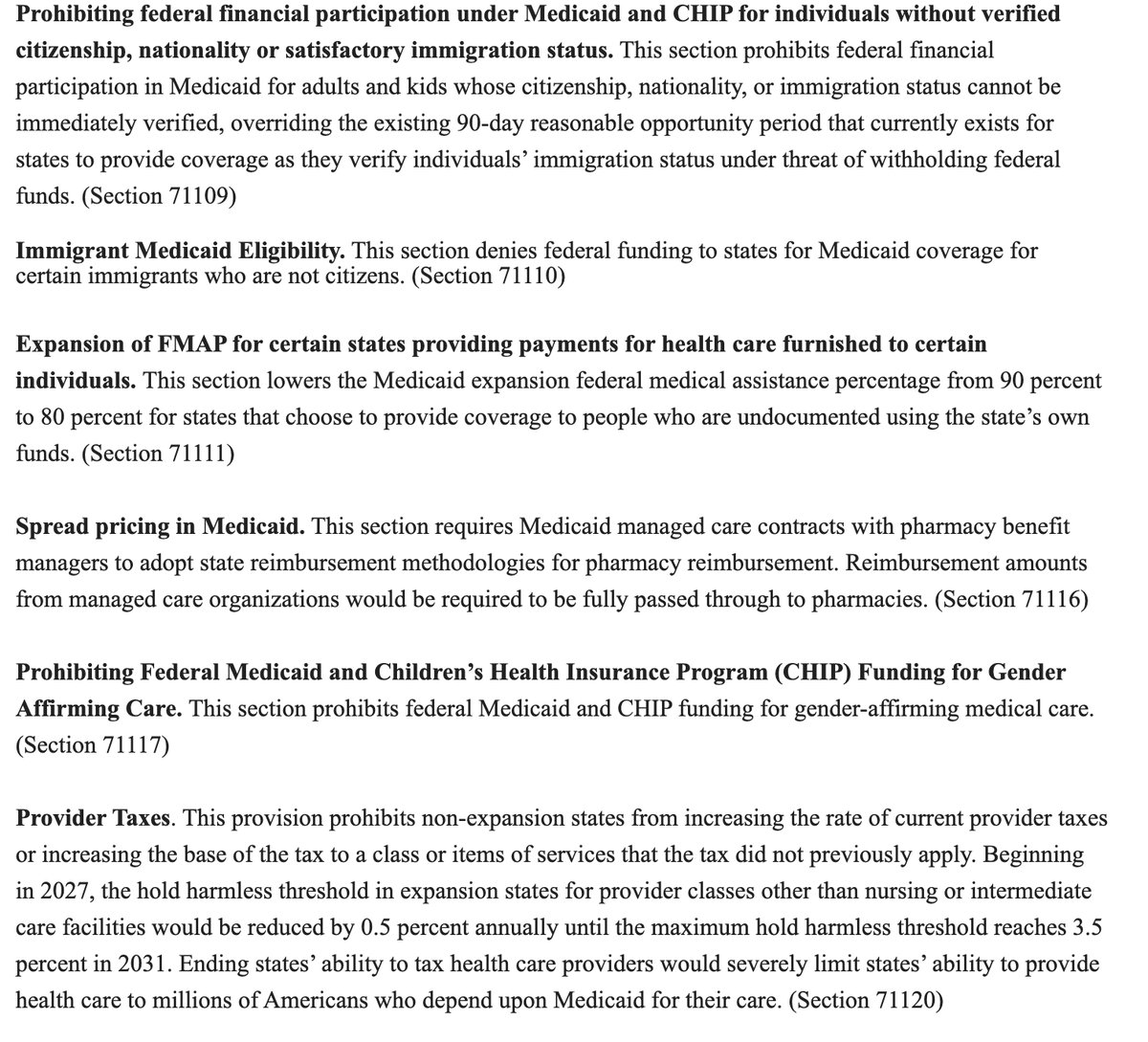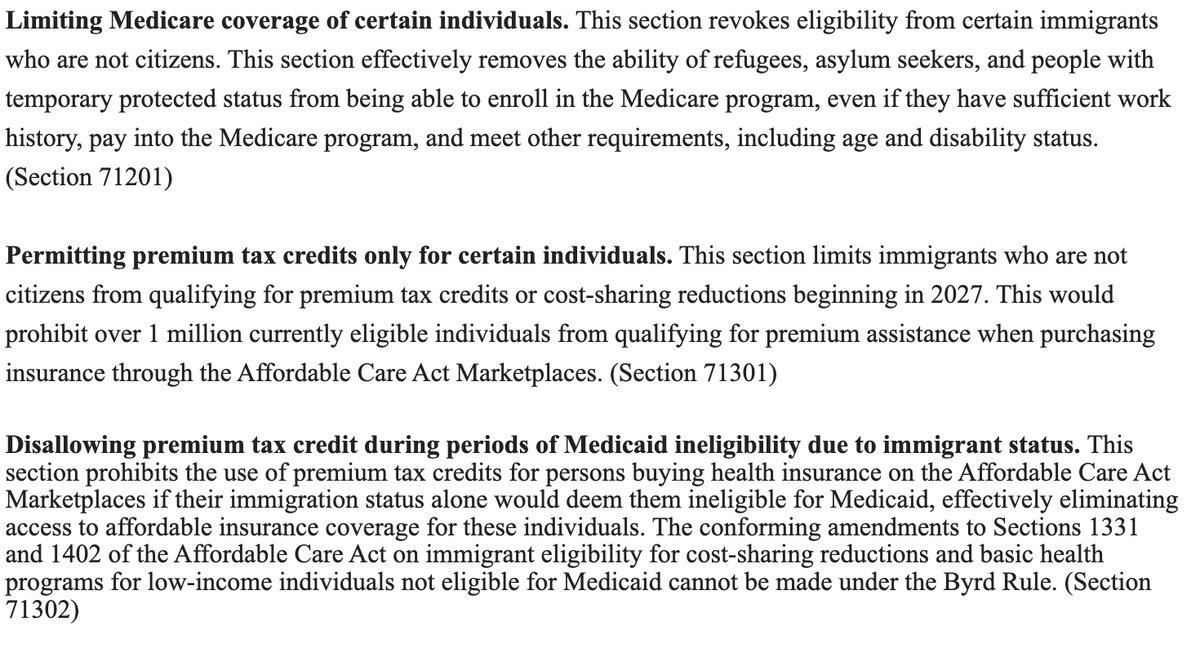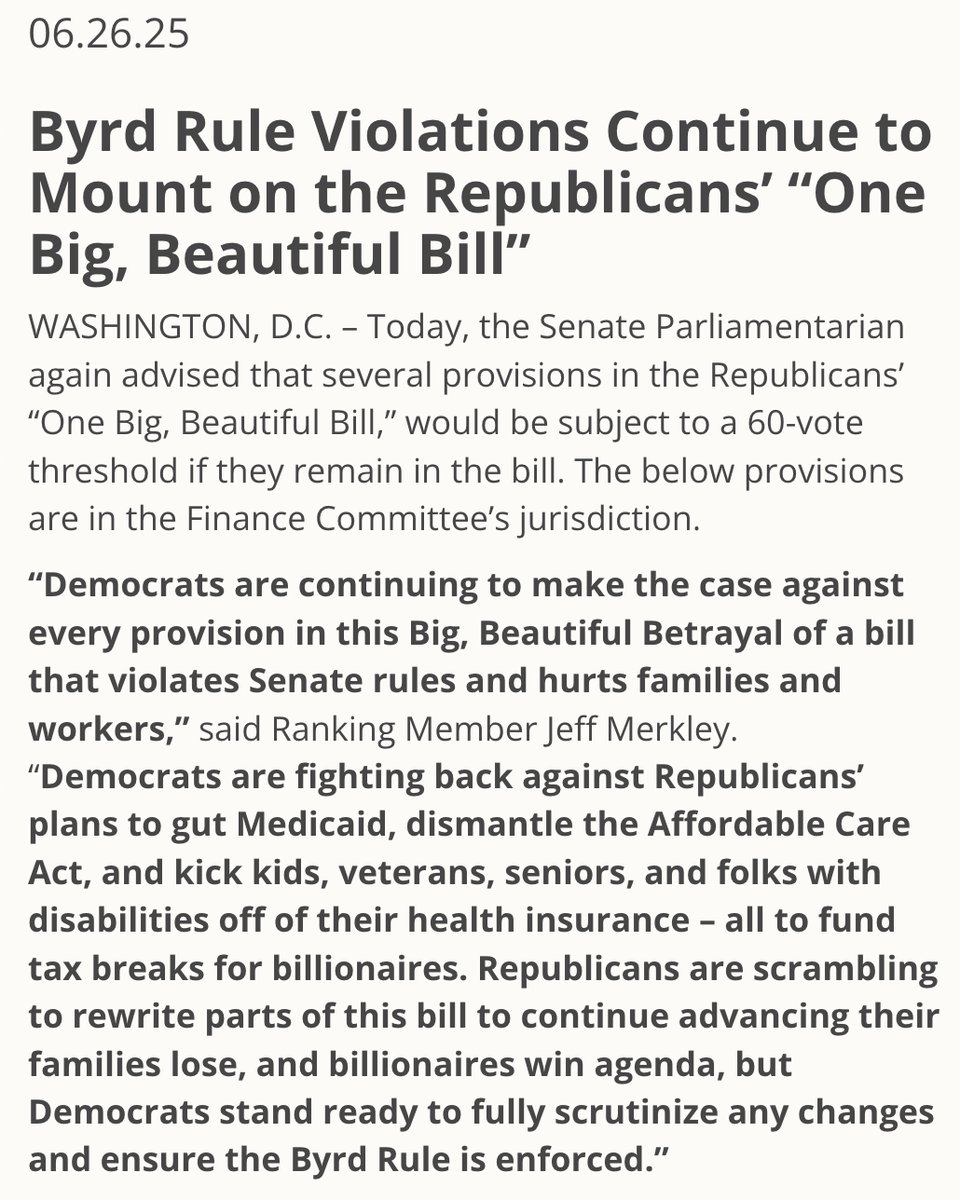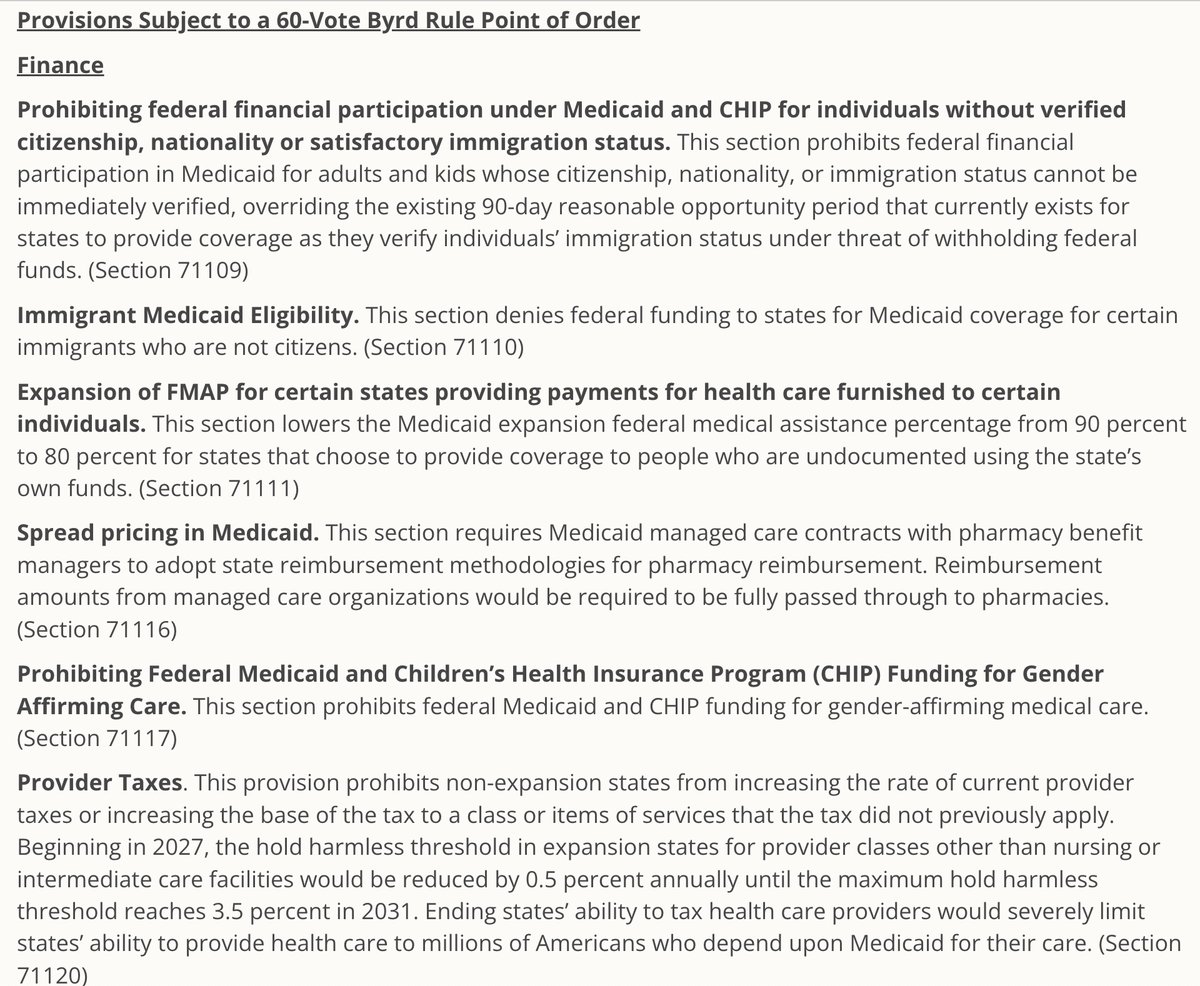General Discussion
Related: Editorials & Other Articles, Issue Forums, Alliance Forums, Region ForumsTHE SENATE PARLIAMENTARIAN has struck a whole bunch of critical health provisions from the reconciliation bill.
This makes me smile. Here are more provisions that have to be removed from the asshole's big ### bill
Link to tweet


trump will need 60 votes in the Senate to get these provision adopted
EdmondDantes_
(681 posts)Republicans couldn't pass anything other than the stupid tax cuts in Trump's first term so he knows he's got to cram as much into this as possible due to their dysfunction.
kacekwl
(8,473 posts)find a way for some crooked judge to go around him.
LetMyPeopleVote
(166,916 posts)If Thune over rules the Senate Parliamentarian, then the Byrd rule will effectively be dead.
Thune says he won’t overrule Senate referee on Medicaid cuts
— @mterr337 (@mterr337xxx.bsky.social) 2025-06-26T15:14:49.007Z
Source: The Hill
share.newsbreak.com/drer38uw
Link to tweet
“No. That would not be a good outcome for getting a bill done,” Thune told reporters at the Capitol.
Senate Parliamentarian Elizabeth MacDonough rejected a plan that would cap states’ ability to collect more federal Medicaid funding via healthcare care provider taxes. The move would have collected hundreds of billions in savings, which Republicans were relying on.
Thune says Republican leaders knew “it was going to be an interesting conversation” with the Senate’s referee about the provision, but believes there are actions members can take to find similar savings.
LetMyPeopleVote
(166,916 posts)LetMyPeopleVote
(166,916 posts)Donald Trump has said the GOP is united behind the inaptly named One Big Beautiful Bill Act. The truth for Republicans isn't nearly that simple.
Overlapping problems create uncertainty over the future of the Republican megabill www.msnbc.com/rachel-maddo... via @msnbc
— Slapshot1955 (@slapshot19551.bsky.social) 2025-06-26T20:41:04.730Z
Link to tweet
https://www.msnbc.com/rachel-maddow-show/maddowblog/overlapping-problems-create-uncertainty-future-republican-megabill-rcna214977
1. GOP numbers aren’t adding up: The Congressional Budget Office concluded last week that the House version of the package would add $3.4 trillion to the national debt, and this week, the nonpartisan Joint Committee on Taxation found that proposed Senate changes would add an additional $400 billion to the price tag.
2. The Byrd bath: Because Republicans are relying on the budget reconciliation process, which prevents Democrats from derailing the bill with a filibuster, GOP lawmakers are having to subject the legislation to a complex process — which includes having the Senate parliamentarian remove provisions that run afoul of certain budgetary rules. This process is known as the “Byrd bath,” named after the late Democratic Sen. Bob Byrd of West Virginia.
In recent days, several key measures have already been stricken from the bill, including elements the party was counting on to help GOP numbers add up. This has caused a behind-the-scenes scramble that has not yet been resolved.
On Thursday, the developments for the party managed to get even worse. NBC News reported, "Republicans suffered a blow Thursday after the Senate referee ruled that a series of health care cuts and savings in their sweeping domestic policy bill are ineligible for the party-line path they're using to get around the chamber's 60-vote threshold."
The result leaves GOP leaders with limited choices: They can (a) look for other solutions; (b) try to tweak the legislation and ask the parliamentarian to take another look; or (c) vote to override the parliamentarian, which would be a radical and dramatic move that would risk altering how the institution functions going forward.
3. Far-right House Republicans think the Senate’s approach isn’t conservative enough: As The New York Times reported, “Some conservatives in the House only grudgingly voted for the legislation the first time, arguing that it did not go far enough in cutting spending, including on Medicaid. They agreed to support the package only after securing what they characterized as commitments from their Senate colleagues to enact deeper cuts and fix the measure. Now, those House Republicans regard the bill taking shape in the Senate, which party leaders hope to push through within days, as even worse.”
4. House Republicans from competitive districts think the Senate’s approach is too conservative: As NBC News reported, “On Tuesday, 16 House Republicans — almost all representing competitive districts — sent a letter rebelling against the Senate’s Medicaid cuts. They fretted that those policies would ‘place additional burdens on hospitals,’ among other things.”
5. The entire effort is unpopular. I mean, really unpopular. Republican officials have been working on this for roughly eight months, and talking up how great their plan is, but at least for now, the American mainstream isn't buying what the GOP is selling, which puts added pressure on members worried about their re-election prospects.
Given the scope of the intraparty disagreements, it’s not yet clear how, when or whether Republicans will work out their differences, and given the narrow margins in both chambers, the margin of error for party leaders is small. That said, if recent history is any guide, most, if not all, of the GOP members expressing skepticism about the legislation can be expected to cave after a couple of angry phone calls and tweets from the president.
We are headed to a debt ceiling issue soon which is why trump wants this bill done by July 4. I doubt that this will happen and we may see an emergency extension of the debt ceiling.

